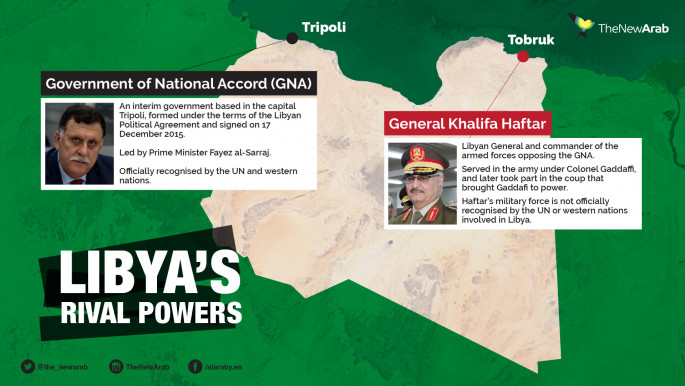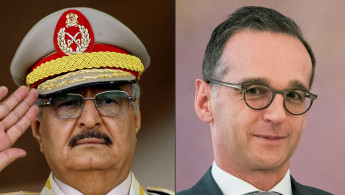Haftar agrees to observe Libya ceasefire, ready to join Germany peace talks
Libyan warlord Khalifa Haftar on Thursday agreed to abide by a ceasefire agreement and said he was ready to participate in a Berlin conference to achieve political reconciliation.
"During my visit to Libya today, General Haftar made clear: He wants to contribute to the success of the Libyan conference in Berlin and is in principle ready to participate in it. He has agreed to abide by the ongoing ceasefire," German Foreign Minister Heiko Maas tweeted after talks in Benghazi.
Libya's UN-recognised government in Tripoli has been under attack since April from Haftar's forces, with clashes killing more than 280 civilians and 2,000 fighters and displacing tens of thousands.
The leaders of the North African state's warring factions were in Moscow early this week at talks aimed at finalising a ceasefire orchestrated by Russia and Turkey.
After the Moscow talks, Haftar had walked away without signing the permanent truce, sparking fears about the shaky ceasefire.
Maas had travelled to meet Haftar in the eastern Libyan city of Benghazi - one of the general's strongholds - in a bid to persuade him to join in the peace initiative.
Twitter Post
|
Battle for Tripoli
The trip came days after Maas spoke with Haftar's rival Fayez al-Sarraj, who serves as head of the UN-recognised government in Tripoli.
Separately in Tripoli, Sarraj announced he would attend the Berlin talks held under the auspices of the United Nations.
The battle over Tripoli is the latest unrest to wrack Libya since a 2011 NATO-backed uprising killed dictator Muammar Gaddafi. Since then, Libya has been caught up in fighting between rival armed factions, including Islamist militants.
In his report to the UN Security Council late on Wednesday, UN chief Antonio Guterres urged all warring parties to stop fighting and "engage constructively towards that end, including within the Berlin process".
He also warned against "external interference", which he said would "deepen the ongoing conflict and further complicate efforts to reach a clear international commitment to a peaceful resolution of the underlying crisis".
The Berlin conference will aim to agree six points including a permanent ceasefire, implementation of the arms embargo and a return to the political process for peace, Guterres said.
As well as killing hundreds of people, the fighting in Libya has also spurred a growing number of migrants from its shores, though nearly 1,000 people intercepted at sea have been forced to return this year, according to the UN.





 Follow the Middle East's top stories in English at The New Arab on Google News
Follow the Middle East's top stories in English at The New Arab on Google News
![The UAE is widely suspected of arming the RSF militia [Getty]](/sites/default/files/styles/image_330x185/public/2024-11/GettyImages-472529908.jpg?h=69f2b9d0&itok=Yauw3YTG)
![Netanyahu furiously denounced the ICC [Getty]](/sites/default/files/styles/image_330x185/public/2024-11/GettyImages-2169352575.jpg?h=199d8c1f&itok=-vRiruf5)
![Both Hamas and the Palestinian Authority welcomed the ICC arrest warrants [Getty]](/sites/default/files/styles/image_330x185/public/2024-11/GettyImages-2178351173.jpg?h=199d8c1f&itok=TV858iVg)